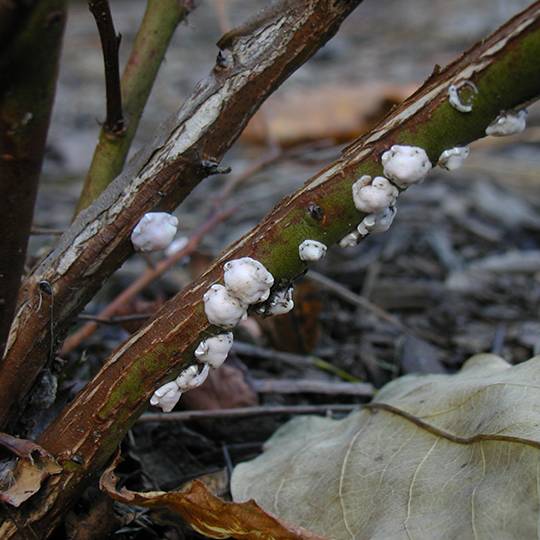
Notoriously hard to control, scales are sap-sucking insects that prey on most kinds of trees and plants. Some species can cause a great deal of damage to the foliage on which they feed, while others are harmless. Resembling small bumps on twigs and branches, scales don’t look like most insects; therefore, they can easily go undetected.
Types of Tree Scale
There are two main groups of tree scale—soft and armored (hard). Both use long, needle-like mouthparts to suck out sap from the host tree or plant.
Characteristics of Soft Scales
- Produce a sugary liquid called honeydew
- Usually larger than armored scales
- Shaped like rounded bumps
- Don’t have a shell, instead they secrete a cotton-like or waxy substance over their bodies for protection
- Some types of soft scales include lecanium scale, cottony maple scale, and magnolia scale.
Characteristics of Armored Scales
- Don’t produce honeydew
- Shaped like a flattened sphere
- Have a hard protective shell
- Some types of armored scales include pine needle scale, oyster shell scale, and euonymus scale.
Signs and Symptoms
Different species of scale vary in appearance and there are more than 1,000 species in North America. Some look like tiny oyster shells, some resemble fish or reptile scales, and there are plenty of others. During early growth stages, scales are called crawlers because they are mobile. These six-legged insects are smaller than a pinhead. Adult scales become stationary, feeding on one spot of the host.
Scale infestations weaken the host tree, and if the infestation is severe enough the tree can die. Damage to an infected tree can include:
- Branches covered with small bumps. (The bumps are actually the insects.)
- Yellow or brownish leaves
- Premature leaf drop
- Twig or branch dieback
- Slower growth.
A sign of a soft scale infestation is a coating of the sticky honeydew substance that they secrete on picnic tables, walkways, and parked cars below the infected tree. While it’s merely an annoyance on these surfaces, honeydew is detrimental to the trees and plants it coats. The syrupy secretion can attract a fungus, called sooty mold, which covers and discolors infested trees and plants, as well as sidewalks, roofs, and other surfaces. Honeydew’s sweetness can also attract ants, bees, and flies.
Treating Tree Scale
It’s easier for a strong, healthy tree to fight off diseases and pests, so proper maintenance is key. Keep trees well-watered and suitably pruned, and be sure to carefully inspect new plants and trees for infestations before you bring them into your yard. If you notice a light infestation beginning on already established trees, immediately prune back the twig or branch and dispose of it.
- Natural predators – Because scales remain in the same place, they are an easy food source for predatory insects like ladybugs and lacewing.
- Chemical treatments – Scale insects are hard to treat because their protective shells or coatings serve as a barrier for pesticides and other chemical treatments. They are most vulnerable to treatments after they hatch, in the crawler stage, when they are looking for a place to feed.
- Larger trees are a challenge because of their size, but an effective method in this case is to inject systemic insecticides into the soil or the tree trunk. This method is more expensive than others, but well worth it because of the success rate.
- Horticultural oils and insecticidal soaps are less toxic than chemicals – Horticultural oils work by smothering the insect during any stage, while insecticidal soap is a natural pesticide that can be used to kill only the larvae. These methods usually require repeated applications.
For assistance with identifying, treating, and preventing tree scale and other pests, contact Elite Tree Care today at 610-935-2279.
Need Help with Tree Scale?
Call Elite Tree Care today at 610-935-2279 and let's talk about how we can help you with Tree Scale and other Pennsylvania tree pests.
Get a Free Quote